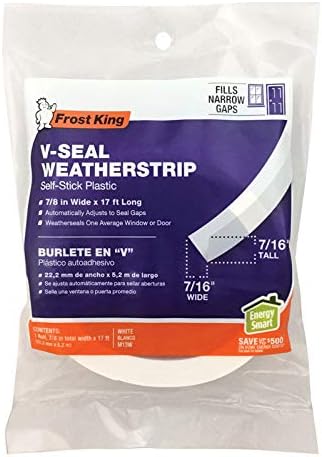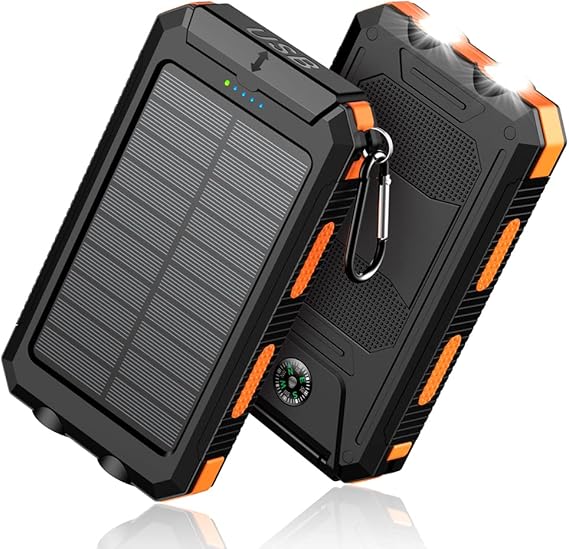Everything You Need to Know About Hurricane Insurance: Coverage, Cost, and More

Everything You Need to Know About Hurricane Insurance: Coverage, Cost, and More
Hurricane insurance is a must for everyone who lives in an area that might be affected by hurricanes.
But what type of hurricane should you consider purchasing? What are the different types of coverage and who offers it? How much does it cost, and how long will your policy last?
Here’s everything you need to know about Hurricane Insurance: Coverage, Cost & More!
What Does Hurricane Insurance Cover?
As a hurricane approaches, you may be wondering what kind of coverage you have for wind damage. Most homeowners insurance policies will cover wind damage caused by hurricanes. However, there may be a separate deductible for hurricane damage.
Hurricane insurance also doesn’t cover storm surge damage. Storm surge is the wall of water that can cause devastating flooding when a hurricane makes landfall. If you live in an area that is prone to storm surge, you’ll need to purchase flood insurance to be properly protected.
In states that are located in “Tornado Alley”, wind and hail damage are usually covered by separate insurance policies. This can result in higher premiums for residents in these states.
Consider purchasing the following items to help protect yourself, your family, and your property during a hurricane:
This packaged plastic sheet is a versatile product that can be used for a variety of purposes in your home, garden, and garage. You can use it to cover and protect your furniture, appliances, and equipment from dust and debris.
DURASACK Heavy Duty Sand Bags are made from woven polypropylene, which is a tough and durable material that can withstand the elements. The bags and tie strings are treated with a UV inhibitor, ensuring they remain intact even after prolonged exposure to the sun.
This product is a weather stripping and is manufactured in China. It is produced by FROST KING, a company that also manufactures door and cabinet hinges and hardware.
Is Hurricane Wind Damage Covered by Homeowners Insurance?
Homeowners insurance covers damage from wind and water, but there are limitations. Some insurers exclude damage from hurricanes altogether. You may need to buy homeowners insurance with supplemental hurricane coverage in states like Florida, Texas, and Louisiana. You may also want to buy separate windstorm and flood policies. Flood insurance is available through the National Flood Insurance Program. Homeowners in high risk areas should check with their state insurance commissioner to see if they need to purchase additional hurricane coverage. States that are threatened by hurricanes usually operate high-risk insurance pools that offer hurricane coverage.
Why You Need Both Home and Flood Insurance for a Hurricane
If you live in a hurricane-prone area, it’s smart to have both hurricane and flood insurance. That way, if your home is damaged by the wind or rain, you’ll be covered.
Every insurance company has their own criteria for assessing damage, so it’s important to check with your provider before a disaster strikes. But in general, coverage for wind-related damage can include damage to a home’s roof, even if the home does not get flooded.
If your home survives a hurricane but is damaged, your hurricane insurance may cover wind-related damage. However, if your street floods from the storm surge, you will need flood insurance. And if your home floods from the rain and storm surge combined, chances are your street may also be flooded. So it’s important to have both types of coverage to be fully protected.
How Much Does Hurricane Insurance Cost?
The cost of hurricane insurance can vary significantly depending on where you live. Factors that affect the cost of hurricane insurance include:
- The value of your home: The higher the value of your home, the more expensive your hurricane insurance will be.
- Your home’s location: If you live in an area that is prone to hurricanes, your insurance will be more expensive than if you live in a less risky area.
- The deductible you choose: The higher your deductible, the lower your premium will be. However, this means that you will have to pay more out of pocket if you do have to make a claim.
- The amount of coverage you need: The more coverage you need, the higher your premium will be. Make sure to get enough coverage to protect your home and belongings from damage caused by a hurricane.
To get the best rate on hurricane insurance, shop around and compare quotes from different insurers. Be sure to read the fine print so that you understand what is covered and what is not covered by each policy.
Does Hurricane Insurance Protect Your Car?
If your car is damaged in a hurricane, your home insurance will not cover the repairs. However, your car insurance may cover damage to your car from wind, water, or hail. In addition, your car insurance may also cover damage to other cars in a hurricane. If you have comprehensive insurance, it will cover the costs of repairing your car in the event of any of the above mentioned damages. Comprehensive insurance will also pay out the value of your car in the event of a hurricane.
Here are some items to consider purchasing before a hurricane:
The Lifestraw Water Filter is highly effective in removing harmful bacteria and parasites from water. Its microfiltration membrane eliminates 99.99% of waterborne bacteria, such as E. Coli and Salmonella, as well as 99.99% of waterborne parasites like Giardia and Cryptosporidium.
This weather radio is equipped with 5 different power sources, making it the ideal choice during prolonged power outages. The hand crank, solar panel, and AC power options make it easy to keep the radio running.
This power bank has a large cell capacity of 36800mAh, which is made possible by the use of industry-leading high-density lithium polymer cells. It is compact and has a high-quality, high-density battery that can support thousands of charge cycles.
When Should Homeowners Buy Hurricane Insurance or Windstorm Insurance?
1. The value of your home: If your home is worth more than the cost of rebuilding it, then you may want to consider buying hurricane insurance.
2. The likelihood of a hurricane hitting your area: If you live in an area that is prone to hurricanes, then you may want to consider buying hurricane insurance.
3. The amount of coverage you need: You will need to determine how much coverage you need in order to protect your home and belongings in the event of a hurricane.
4. The cost of the premium: Hurricane insurance policies can be expensive, so you will need to factor the cost of the premium into your decision.
Does Renters Insurance Cover Hurricane Damage?
Renters insurance typically covers wind damage, but it exclude flood damage. If you live in a high-risk area for hurricanes, it’s important to check your policy to see if wind damage is covered. You may be able to add this coverage to your policy if it’s not included.
Are Wind and Hurricane Insurance the Same?
Wind insurance policies usually cover damage from high winds, while hurricane insurance policies specifically cover damage from hurricanes. However, some windstorm insurance policies may include both types of coverage. The cost of wind and hurricane insurance varies depending on the location and value of your home, as well as the amount of coverage you need.
What is a Hurricane Deductible or Hurricane Damage Deductible?
A hurricane deductible is an amount of money that is subtracted from your insurance claims check in the event that you have to file a claim for damages caused by a hurricane. Hurricane deductibles are separate from your home insurance deductible, and they can be paid in percentages. The amount of money that is subtracted from your insurance claims check will depend on the deductible you choose.
How Do Hurricane Deductibles Work?: In order for a hurricane to be officially named, it must be classified as such by the National Hurricane Center, NOAA, or U.S. National Weather Service. Once a storm has been officially named, your insurance company and state will specify the trigger for your hurricane deductible.
Which States Offer Hurricane Deductibles?: There are currently fourteen states that allow hurricane or named storm deductibles: Alabama, Connecticut, Delaware, Florida, Georgia, Hawaii, Louisiana, Maryland, Massachusetts, Mississippi, New Jersey, New York, North Carolina, Pennsylvania, Rhode Island, and South Carolina. These states offer a tax break for people who have to pay for damages incurred as a result of a hurricane or named storm. The tax break varies depending on the state, but typically allows people to deduct a percentage of their total hurricane or named storm damage expenses.
If you live in one of the fourteen states that allow hurricane or named storm deductibles, it’s important to know how they work. Hurricane deductibles are separate from your home insurance deductible and can be paid in percentages. The amount of money that is subtracted from your insurance claims check will depend on the deductible you choose. In order for a hurricane to be officially named, it must be classified as such by the National Hurricane Center, NOAA, or U.S. National Weather Service.
Once a storm has been officially named, your insurance company and state will specify the trigger for your hurricane deductible. These states offer a tax break for people who have to pay for damages incurred as a result of a hurricane or named storm. The tax break varies depending on the state , but typically allows people to deduct a percentage of their total hurricane or named storm damage expenses.
How Do Hurricane Deductibles Work?
 A hurricane deductible is a fee that your insurance company charges when a storm is named. Your insurance company will specify your hurricane deductible when you buy your policy. Your hurricane deductible will depend on the storm’s name and the organization that names it.
A hurricane deductible is a fee that your insurance company charges when a storm is named. Your insurance company will specify your hurricane deductible when you buy your policy. Your hurricane deductible will depend on the storm’s name and the organization that names it.
What Is A Hurricane Deductible?
A hurricane deductible is an amount of money that must be paid out-of-pocket by a policyholder before an insurer will pay a claim related to damage caused by a hurricanes. Most policies have deductibles of 2% or 5% of the home’s insured value, but some insurers offer deductibles as high as 10%.
How Does A Hurricane Deductible Work?
A hurricane deductible is a fee that your insurance company charges when a storm is named. Your insurance company will specify your hurricane deductible when you buy your policy. Your hurricane deductible will depend on the storm’s name and the organization that names it.
For example, let’s say that you have a home insurance policy with a $250,000 dwelling limit and 5% hurricane deductible. If your home sustains $50,000 in damage from Hurricane Irma, you would be responsible for paying the first $12,500 of repairs (5% of $250,000). Your insurance company would then pay the remaining $37,500.
Some insurers offer hurricane deductibles as a percentage of the dwelling limit, while others use a flat dollar amount. For example, if your policy has a $500 hurricane deductible and your home sustains $50,000 in damage, you would be responsible for paying the first $500 of repairs.
Deductibles can vary by insurer and by state. In some states, such as Florida and Texas, insurers are required to offer hurricane deductibles. In other states, such as New York and Massachusetts, insurers are not allowed to offer hurricane deductibles.
If you live in a state where hurricane deductibles are offered, be sure to ask your insurer about this coverage option when you’re shopping for home insurance.





